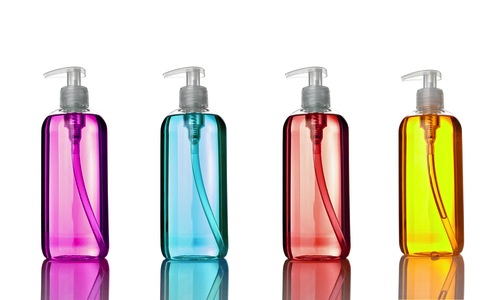
Lawsuit Forces FDA to Finally Enforce Removal of Endocrine Disruptor Triclosan From Soaps

The U.S. Food and Drug Administration (FDA), under a court agreement signed Thursday, will end decades of delay and decide how to protect consumers from triclosan, a suspected endocrine disruptor linked to reproductive and developmental harm in laboratory studies.
The FDA first proposed in 1978 to remove triclosan from certain consumer products. But because it took no further action, the chemical has been widely used in antimicrobial soaps sold in the U.S.
In 2010, the Natural Resources Defense Council (NRDC) sued the FDA in U.S. District Court for the Southern District of New York to force the agency to issue a final rule. The parties reached a settlement and, under a consent decree signed Thursday by U.S. District Judge Alvin K. Hellerstein, the agency committed to taking final action on triclosan used in consumer hand soaps by 2016.
“It’s outrageous that FDA has waited 35 years to protect the public from this harmful chemical. This final rule should prohibit triclosan from use in soaps,” said Mae Wu, an attorney in NRDC’s health program.
“Washing your hands with soap containing triclosan doesn’t make them cleaner than using regular soap and water. In fact, not only do soaps containing triclosan fail to provide benefits consumers might expect, they carry potential health risks.”
The growing use of triclosan in products over the past few decades has led to widespread residues in the environment and in people. Bio-monitoring results found residues of triclosan in 75 percent of Americans over the age of six. The chemical is absorbed through contact with the skin and tests have found it in human blood, urine and even breast milk.
Laboratory studies have shown that triclosan is an endocrine disruptor capable of interfering with hormones critical for normal development and reproduction. Such hormonal interference has the potential to cause long-term health problems including poor sperm quality and infertility and damage to the developing brain leading to poor learning and memory. Several studies suggest that triclosan also may contribute to the development of antibiotic-resistant bacteria, may exacerbate allergies, and may weaken muscle function.
In April 2010, FDA acknowledged soaps containing triclosan offer no additional benefit over regular soap and water. FDA also has expressed concern about the development of antibiotic resistance from using antibacterial products and about triclosan’s potential long-term health effects, but did not move ahead on the rule-making, prompting NRDC’s action.

 233k
233k  41k
41k  Subscribe
Subscribe 

